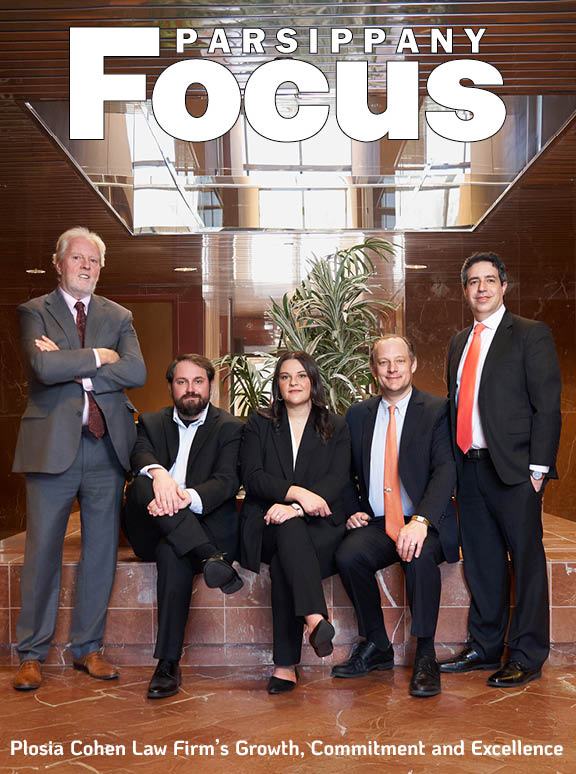PARSIPPANY — Mikie Sherrill (NJ-11) and Mike Turner (OH-10) reintroduced the Brownfields Redevelopment Tax Incentive Reauthorization Act. This legislation would allow state and local governments, nonprofits, or developers to fully deduct the cost of environmental remediation of brownfields, and vacant industrial and commercial areas like gas stations that remain undeveloped because of concerns of environmental contamination.
“Brownfields redevelopment are great opportunity to take abandoned and even environmentally hazardous sites and transform them into new business opportunities and community spaces that provide critical flood mitigation and contamination cleanup. Unfortunately, the high costs associated with redevelopment make it difficult to move projects forward. That’s why I’m introducing this bipartisan bill to offset the cost of revitalizing these sites. These projects will in turn create jobs, expand opportunities for businesses, and increase property values,” said Rep. Sherrill. “We’ve already seen positive results in communities like Bloomfield that have turned a brownfield site into a community park and flood mitigation area. With this tax credit, we will be able to build on that success and create new opportunities for housing, infrastructure, business, and recreation.”
“During my tenure as Mayor of Dayton, I identified a brownfield redevelopment project that spurred the construction of what is now the Dragons’ home, and I have proudly worked to repurpose the Miami Valley’s brownfields for development ever since,” said Rep. Turner. “Day Air Ballpark has become a vibrant economic and social anchor in Downtown Dayton, attracting hotels, breweries, and condominiums to the area. Communities nationwide can use the Dayton model to spur private investment, and I am grateful for Congresswoman Sherrill’s partnership in this meaningful effort.”
“This tax incentive is one of the most powerful tools the federal government has to promote brownfield cleanup and development. It’s available across the country to volunteers with a contaminated site and returns significant capital that developers can invest in their next project. We urge Congress to support it,” said Lee Ilan, Steering Committee Member, National Brownfields Coalition, Chief of Planning, Mayor’s Office of Environmental Remediation, Mayor’s Office of Climate & Environmental Justice, City of New York.
“Successful brownfield redevelopment requires addressing the extraordinary cost these sites present to the private market. When in effect previously, the federal Brownfields Tax Incentive helped offset these costs and moved the market to redevelop sites for the benefit of everyone. If enacted again, similar results can be expected– widespread advantages for all parties involved,” said Jim Tischler, Chair, National Brownfields Coalition Policy Committee, Development Director, Michigan Land Bank Authority.
“It will greatly benefit brownfield redevelopment efforts in the Northeast to have the return of this federal tax incentive,” said Linda Shaw, Esq., Knauf Shaw LLP, Policy Committee Member, National Brownfields Coalition
“We are thankful to Rep. Sherrill’s office for reintroducing this vital tax credit for brownfields redevelopment and community revitalization and are eager to see its passage into law,” said Katharine Burgess, Vice President of Land Use and Development at Smart Growth America, which convenes the National Brownfields Coalition. “The tax incentive can accelerate the cleanup of the nation’s contaminated sites and is a powerful tool to support equitable development in areas that have been historically disadvantaged by harmful land uses.”
“The time could not be better for us to come together to push for the passage of the Brownfields Redevelopment Tax Incentive Reauthorization Act to advance brownfield redevelopment projects. The Act embodies our common vision to create safe, healthy and clean neighborhoods where people live and work,” said Jean Hamerman, Executive Director, the Center for Creative Land Recycling.
The Brownfields Tax Incentive was first passed as part of the Taxpayer Relief Act of 1997. It allowed taxpayers to deduct remediation expenditures for the cleanup of a property if the property was used for trade, business, or producing income. However, following a two-year extension in 2009, the incentive expired on January 1, 2012, and Congress has since failed to reauthorize this tax incentive. There are an estimated 450,000 brownfields across the country.
Rep. Sherrill previously introduced the Brownfields Redevelopment Tax Incentive Reauthorization Act in the 116th and 117th Congress.
















